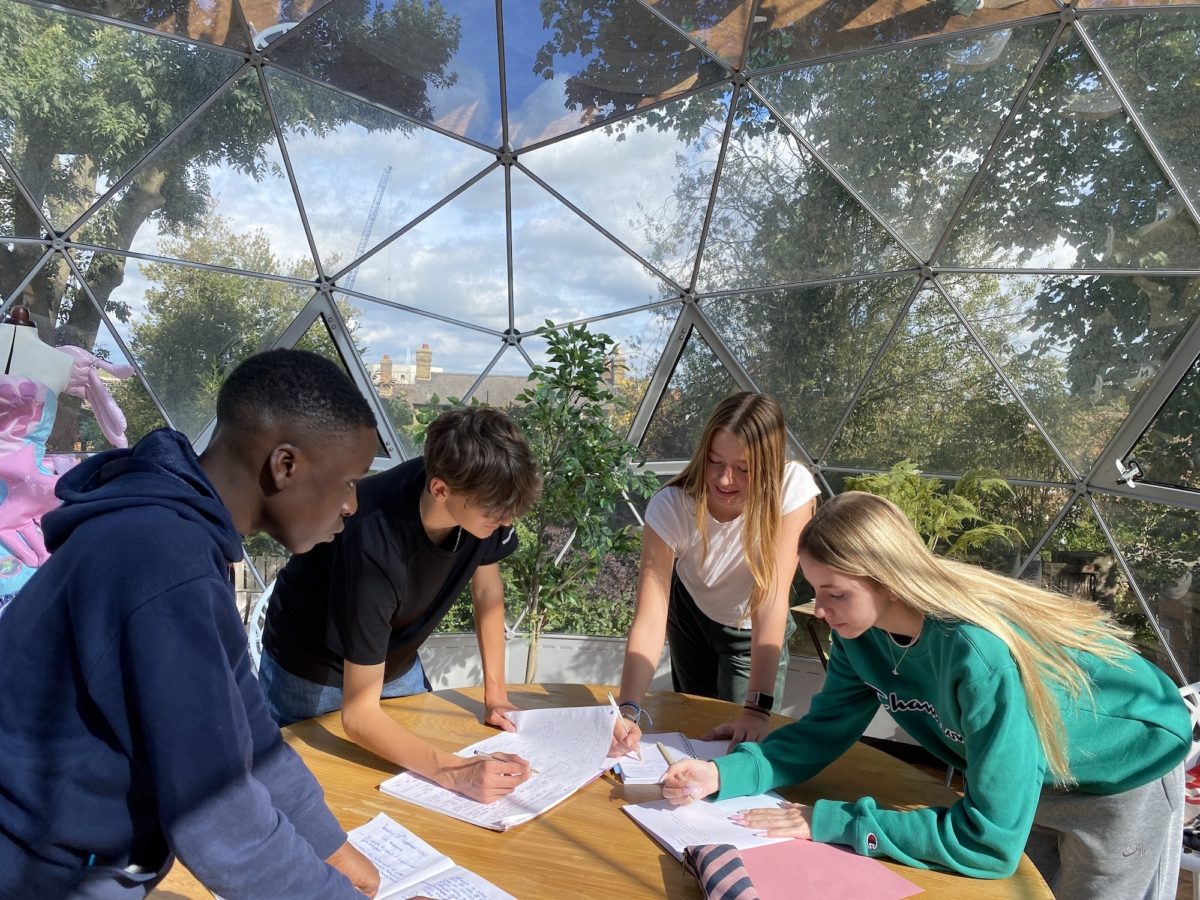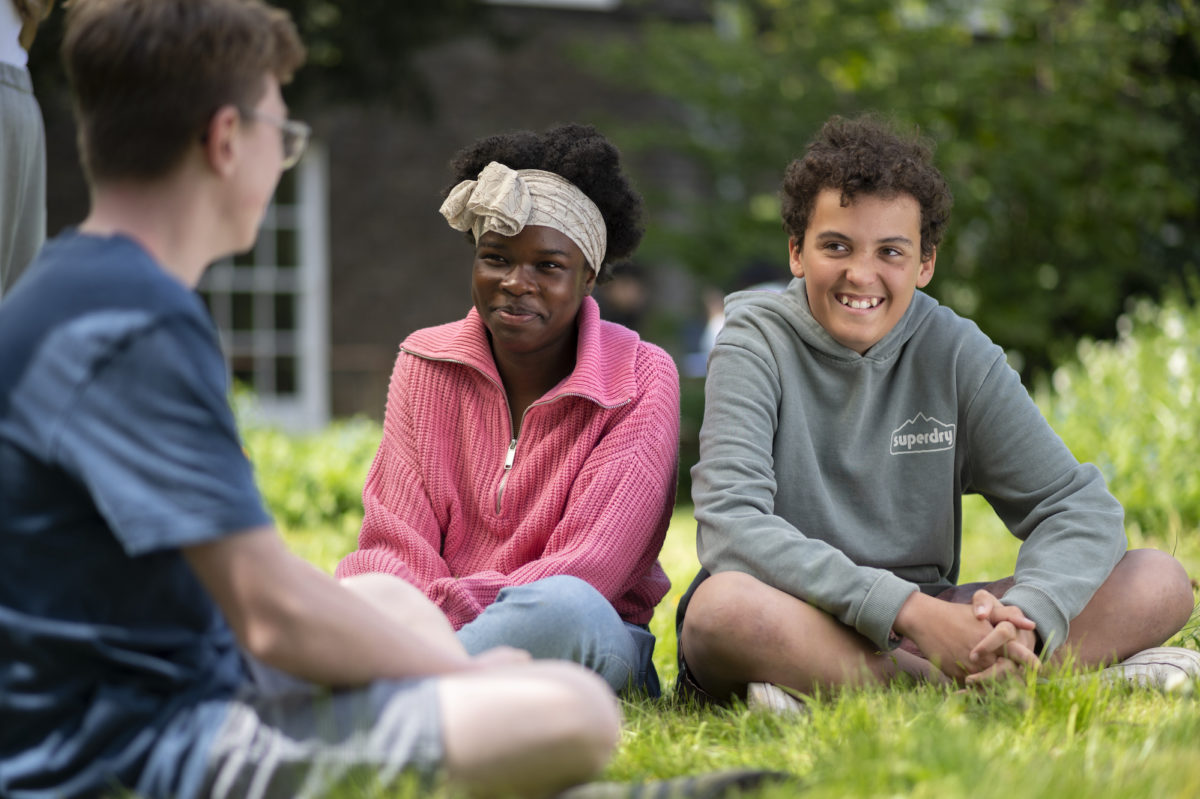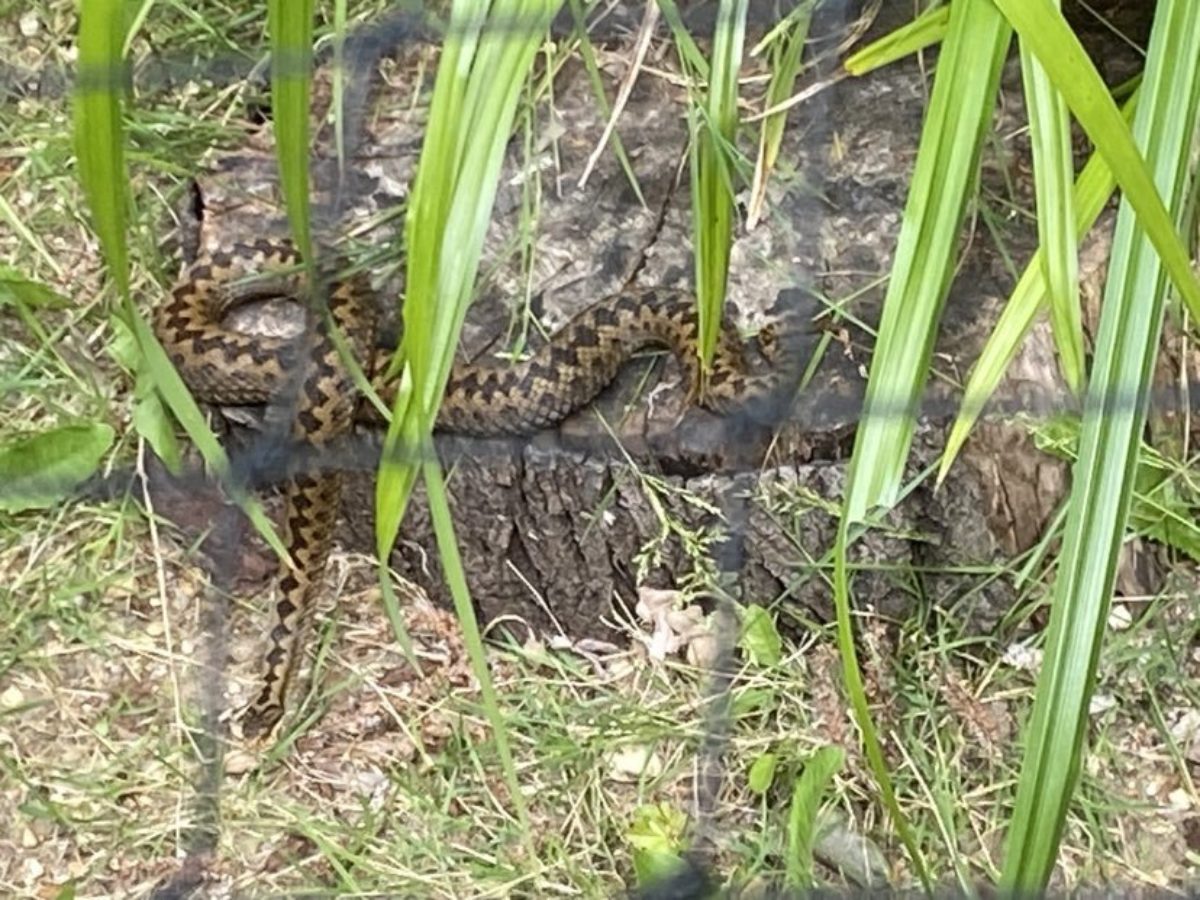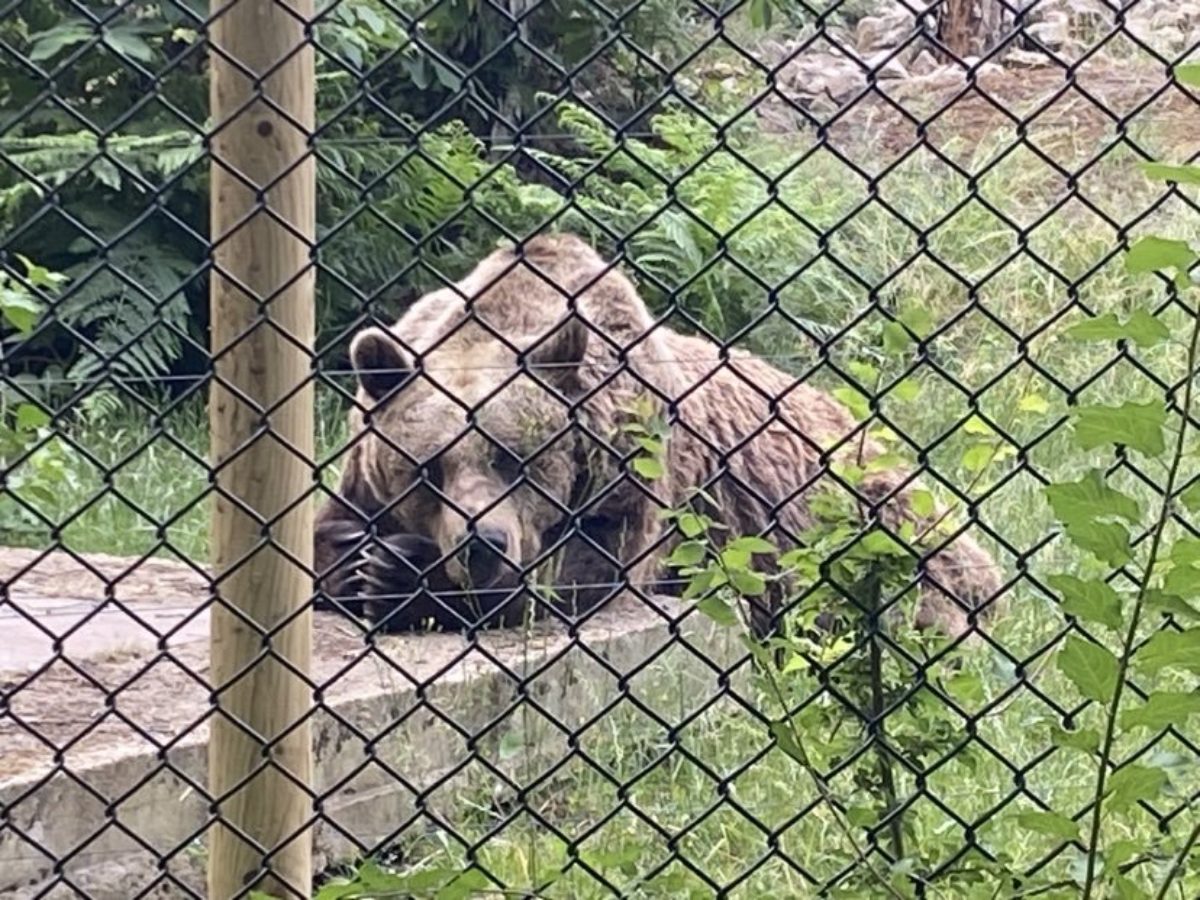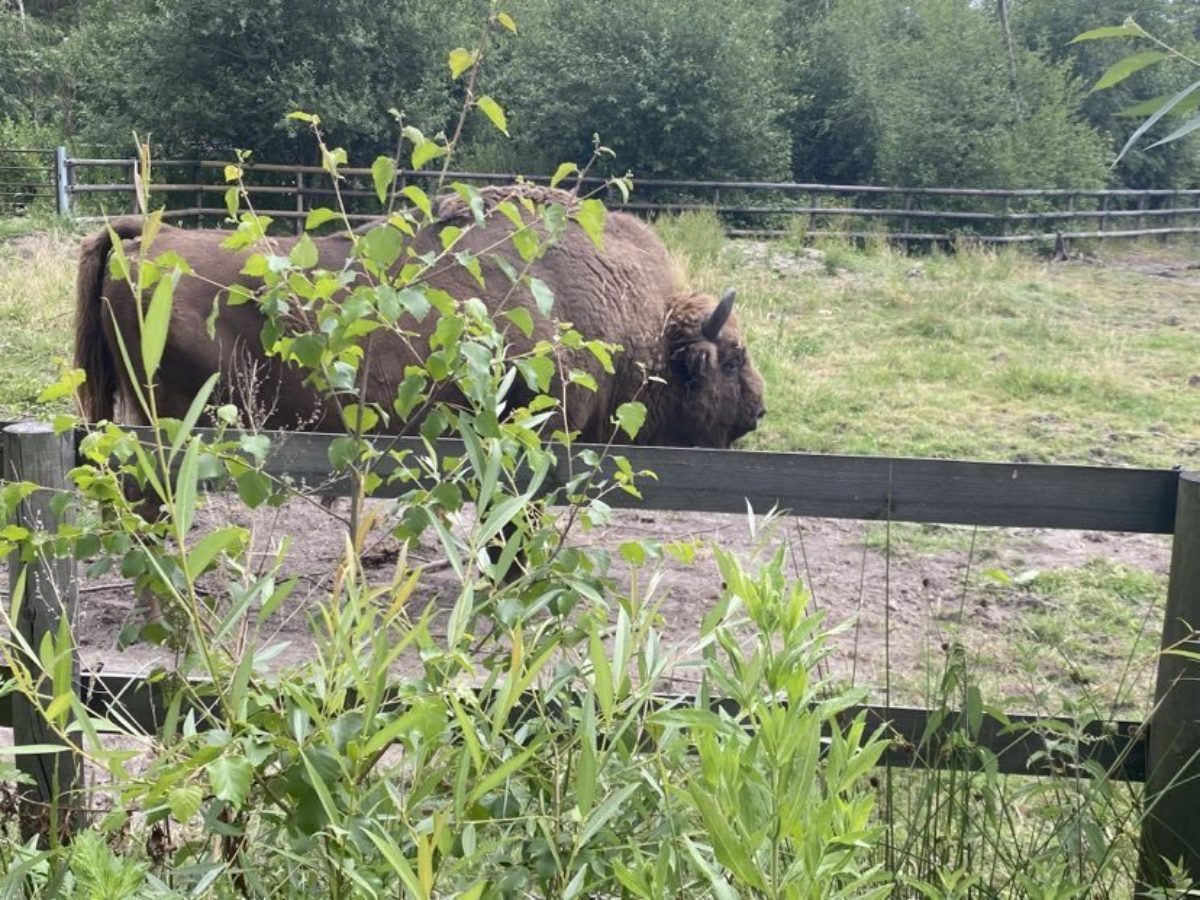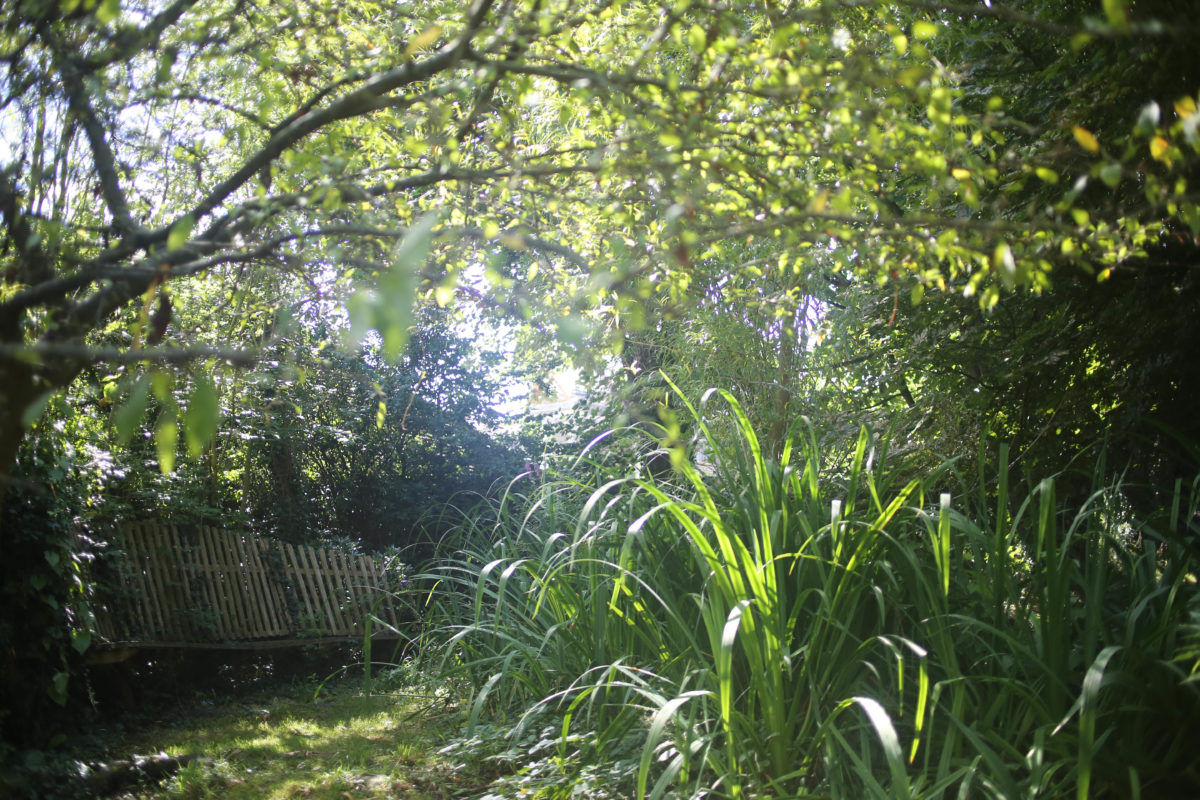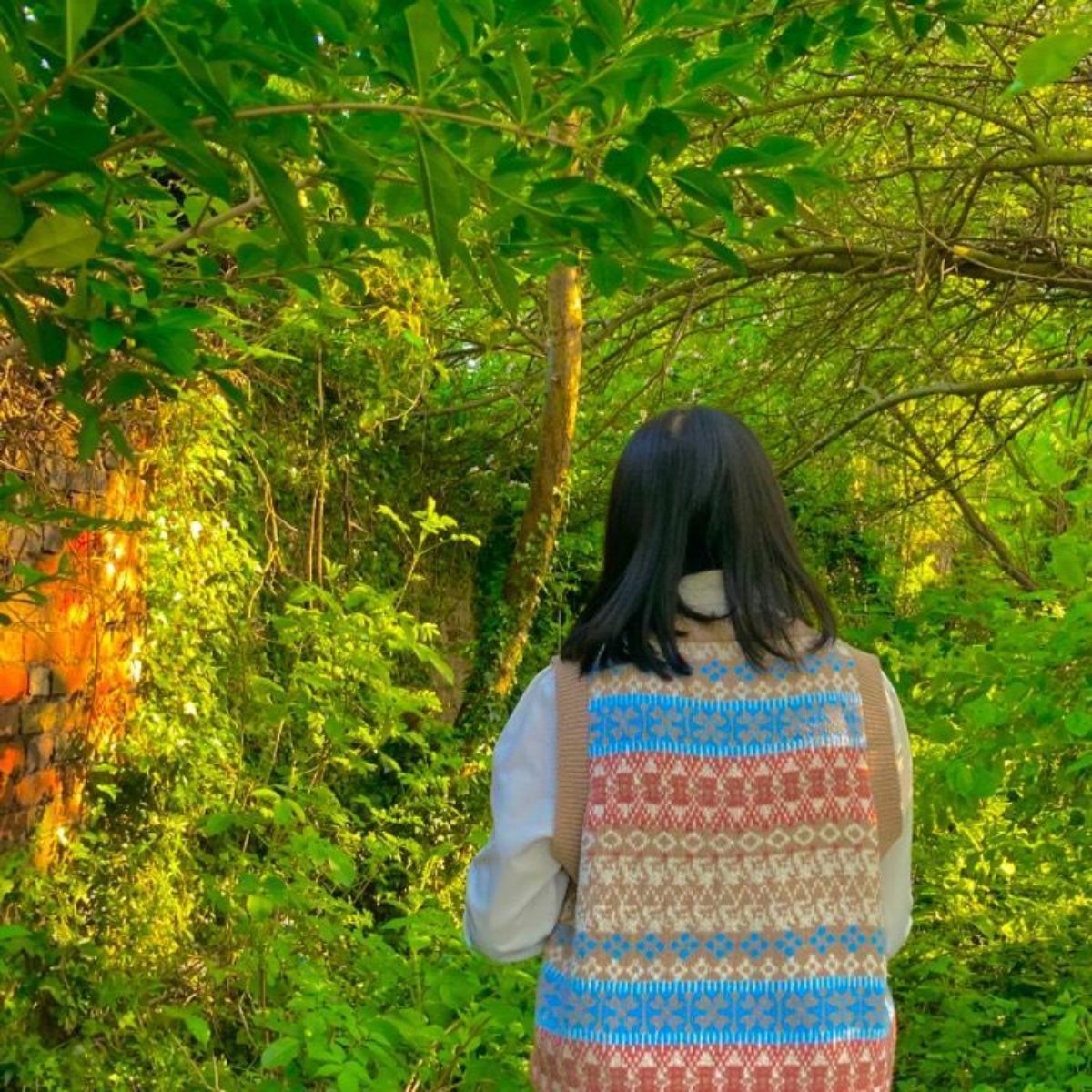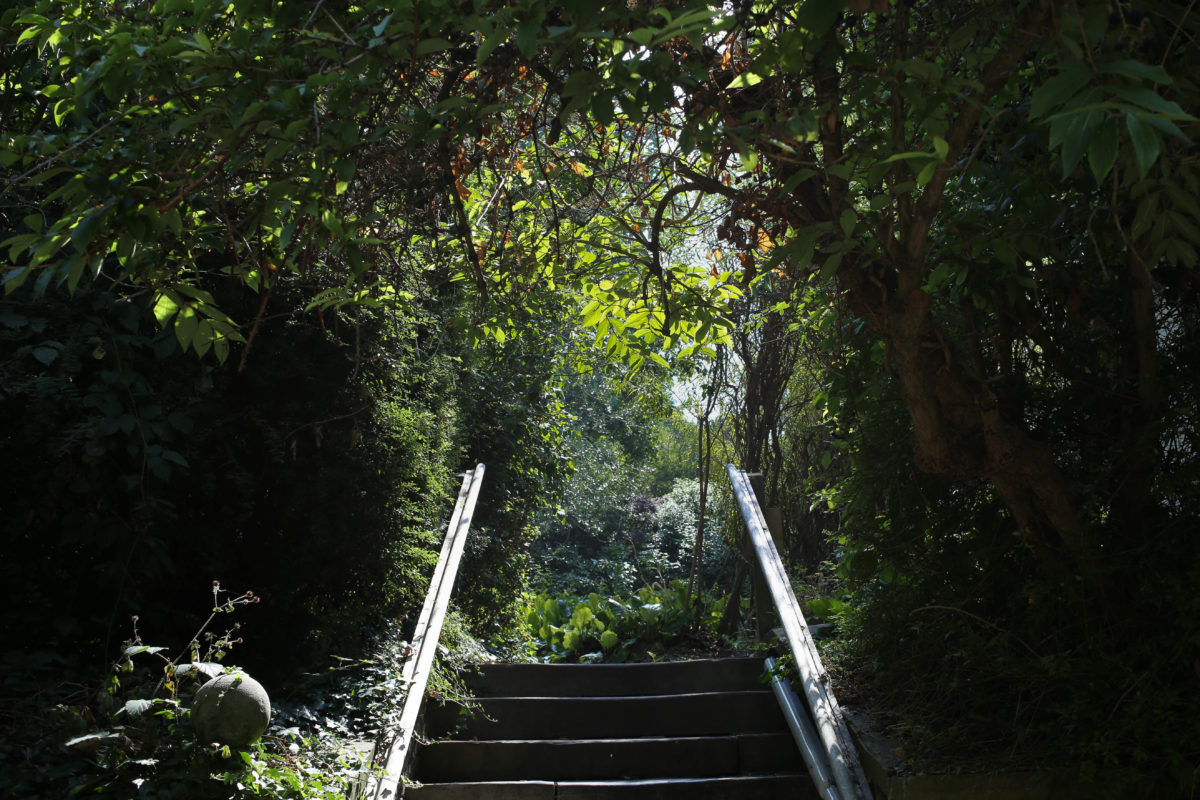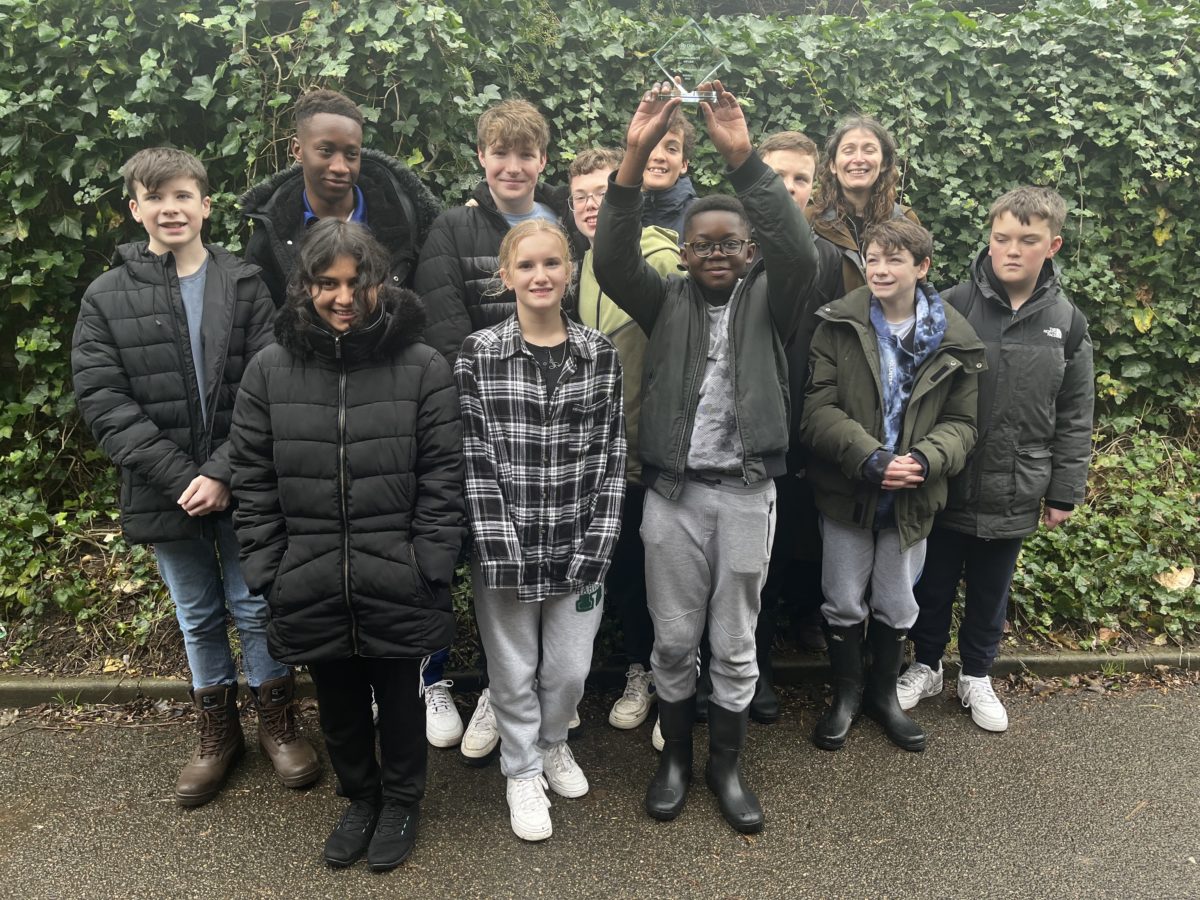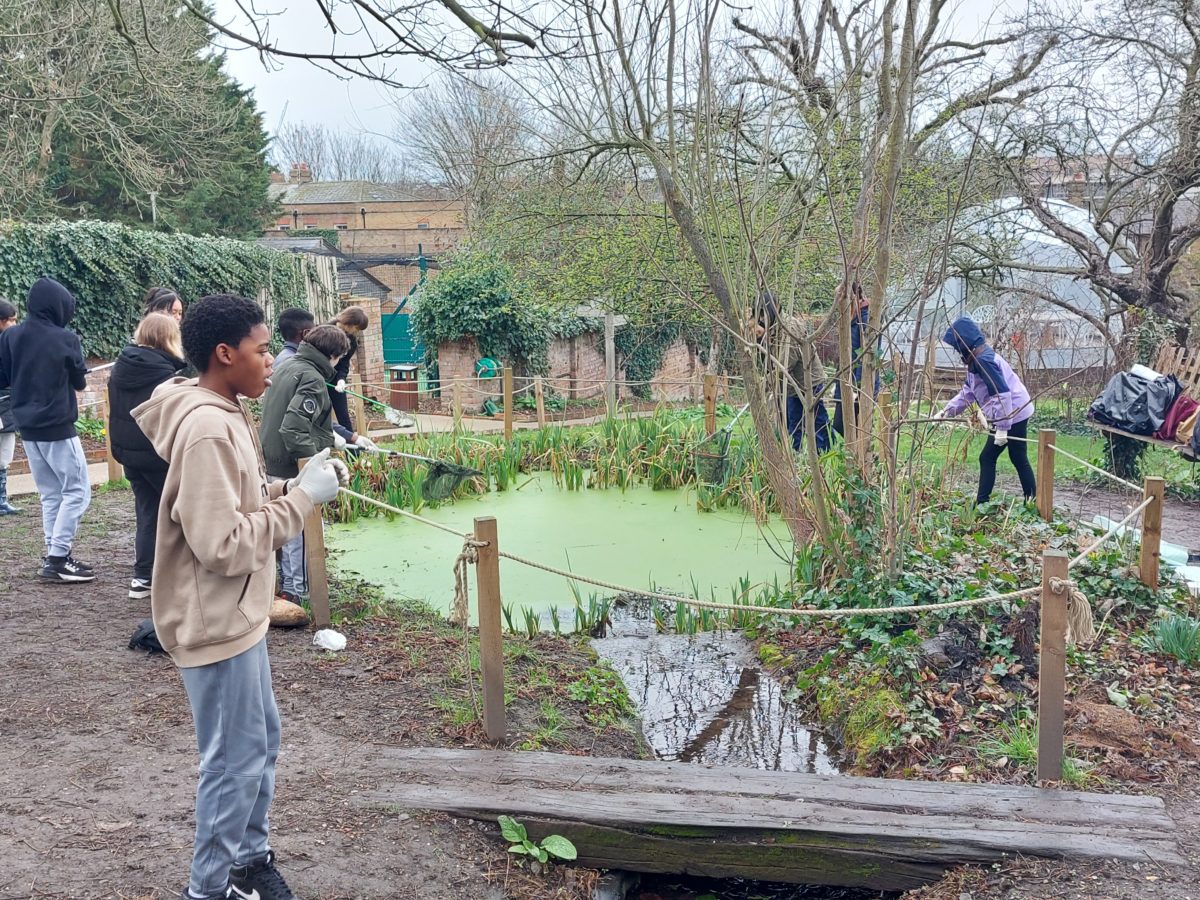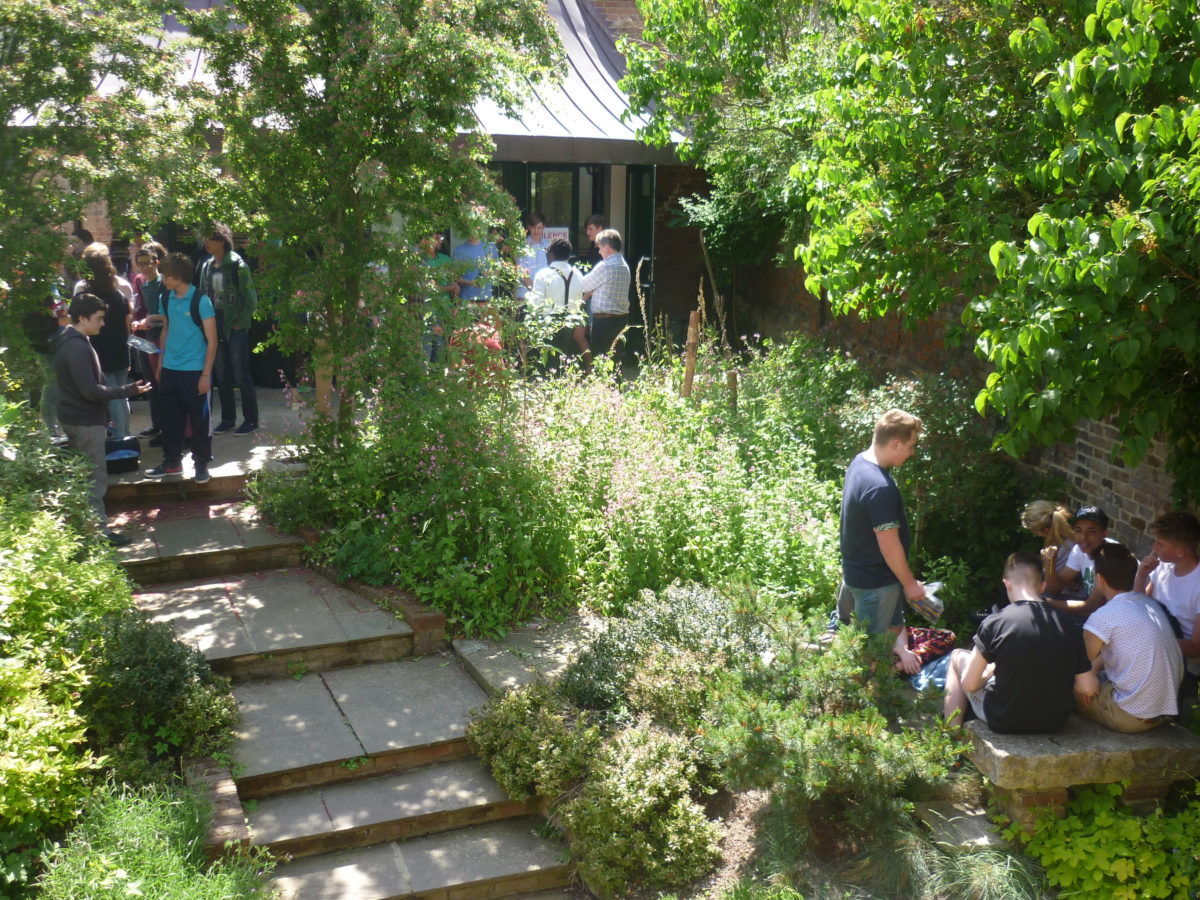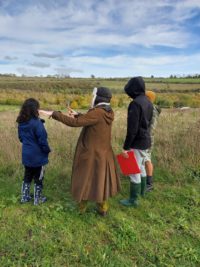
Grasping the Nettles
We envision a future in which humans work in partnership with other species to create a circular economy with zero waste; where indigenous and ancient wisdom about the intrinsic value of nature is revived and combined with cutting edge science and technology to benefit the health and wealth of humans and the planet.
Our interdisciplinary sustainability curriculum moves with the seasons, responding to environmental problems as we encounter them, to inspire awe and wonder at the elegance of nature’s systems and to develop the understanding, practical skills and creativity necessary to enable our students to successfully tackle the climate emergency.
We think globally but begin by acting locally. The curriculum starts in Years 7-9 in the College gardens and site, where students learn on the job, practically assisting in making the College run in a more environmentally sustainable way. We focus in these year groups on fostering a love for the Kent countryside, maximising fieldwork opportunities to provide students with an understanding of, and the skills to protect, their local environment.

Sustainability Curriculum launched 2022-23
This year we launched our Sustainability Curriculum with some of our Year 9 students. 2 lessons of Ecology per week focussed on ecosystems, how they function and how they can be made more resilient. The benefits of rewilding keystone species for ecosystem resilience, carbon capture and the retention of water in the land have been explored. We have begun to investigate how partnerships between people, plants, animals and fungi can help to create circular systems with zero waste, with maximum opportunities for fieldwork in Kent.

Award winners
Here at RIC we are proud to announce that we have won a bronze award at this year’s Wilder Kent Awards for our hard work in helping to create a Wilder Kent.
The Wilder Kent Awards were set up by Kent Wildlife Trust in 2020 as a way of recognising and rewarding the positive actions that groups across Kent are taking in order to protect wildlife and safeguard nature for future generations.
Now in its 3rd year, 2023 saw the Wilder Kent Awards gain over 65 entries from groups and organisations across the county and we are proud to be part of a growing army in the fight against the nature and climate crisis.
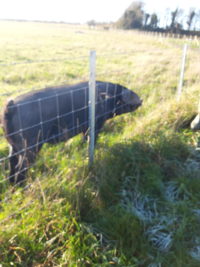
Fieldwork opportunities in 2022-3
Iron Age Pigs at Nashenden Down
We volunteered for the Kent Wildlife Trust, monitoring the Nashenden Down site weekly from Autumn to Spring to assess the biodiversity of vegetation prior to the introduction of Iron Age Pigs. We saw common lizards in breeding season as well as a variety of native meadow plants. We intend for RIC students to monitor the site again once the pigs have grazed it and compare our results.
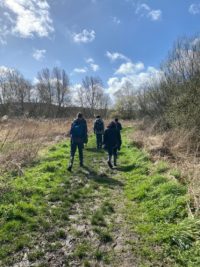
Beaver tracking and field signs
We learned how to look for field signs of beaver activity, visiting the river Stour at Fordwich in early Spring where we tracked the beavers using field signs and succeeded in finding their lodge. Students saw first hand the impact of beaver activity on the environment; their felling of some trees had opened up patches of sunlight for more diverse plants to grow whilst their creation of channels stored more water in the land, protecting ecosystems from the effects of drought. We discussed how a partnership between beavers and farmers might protect crops from drought and how this was already beginning to be put into practice at Ham Fen.
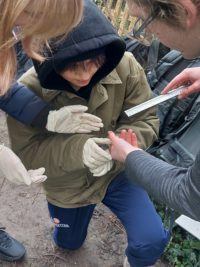
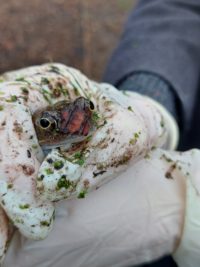
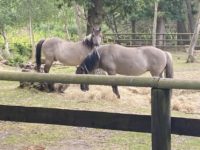
Swabbing frogs for ranavirus
Students from Years 7-10 undertook the RIC Amphibian Conservation project February and March on frog conservation in the school pond. Jack Dunn in Year 11 led the project. Jack works for the National Centre for Reptile Welfare. We tested 30 frogs for ranavirus as part of a study designed to track the spread of the disease in UK amphibians. The virus was introduced to the UK as a result of the importation of American bullfrogs and had reduced common frog populations in the South East and our work fed into a national campaign to track and tackle the problem.
Howletts for global animal conservation
Year 10 international English students visited Howletts conservation zoo in Bekesbourne to connect our study of English texts such as 'H for Hawk' to natural life at Howletts in splendid weather. We gathered and listened actively to a conservation talk given by Ren, the conservation expert at Howletts. The students learned the main aims at the zoo which consist of rewilding, breeding as well as natural habitat conservation. Having explored the different sustainable and open areas at the zoo, the students excitedly visited the protected wildlife by the Aspinall Foundation. A highlight was seeing the 27 gorillas spread around the park as well as the calm environment with the African elephants. Towards the end of our trip, we were able to listen to the sounds of nature as this allowed for a greater understanding of some of the world's most fragile environments and endangered animal species that live there such as the lemur troop and the black and white rhinos.
Wildwood to learn about rewilding
A trip to Wildwood near Canterbury in the summer allowed us to see the diverse array of mammals and reptiles that live in Europe and some that have become extinct here. Wildwood provides many of the animals for the Kent Wildlife Trust’s rewilding projects. We were able to see adders, an otter, egrets, bison, wild boar, pine martens, wolves and bears amongst other species that are and have been native to the UK and learn about their role in ecosystems. We spent an exciting afternoon examining the skulls of different species and deducing their roles in ecosystems, understanding the benefits of rewilding them.
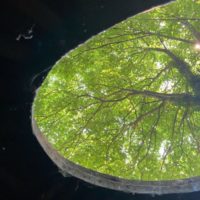
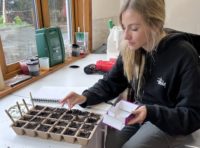
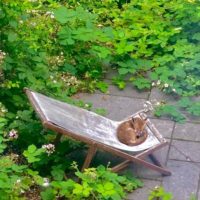
The College Gardens
The gardens at the heart of our College are central to our sustainability vision. They support a range of wildlife from bees to foxes. Frogs proliferate in our pond and dragonfly larvae pupate. We are starting the journey of moving towards managing our gardens as a self-sustaining ecosystem along permaculture principles, beginning the process of transforming them into a sustainable learning resource. We have joined the Permaculture Association and have recruited Meg Watson, our gardener-permaculture educator to deliver twice weekly lessons to Year 7 and once weekly lessons to Year 8. We have a tall tree canopy, shorter mature fruit trees, including medlar, and are letting some hedgerow plants such as hawthorn and hazel flourish. This year, we have left comfrey and green alkanet to flower to attract pollinators.
This spring, as part of her MA in Regenerative Design, Francesca Baur, our Textiles teacher, has planted the seedlings for her dye garden - a portion of the garden from which natural dyes can be harvested. Plants include Madder, Woad, Weld, Chamomile, Coreopsis, Hopi Sunflowers, Indigo, Marigold, Greenweed and Yarrow. As this plot matures, it will become a learning resource for generations of textiles students to understand how to make fashion more sustainable.
During the Spring and Summer, Year 9 Ecology students spent time in the College gardens studying its ecosystems with a view to mapping the sectors that affect the growth, health and diversity of species in our gardens. Here, students are undertaking the groundwork for next year’s Year 7 students in beginning to create a self-sustaining garden built on permaculture principles from which we hope to yield a harvest. It will take a number of years for the gardens to become fully self-sustaining, an endeavour that will become the work of generations of RIC students. The garden will act as a permanent learning resource, modelling the natural cycles upon which a circular economy might be built, something that is essential for a sustainable future.
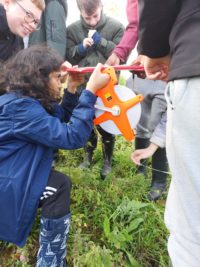
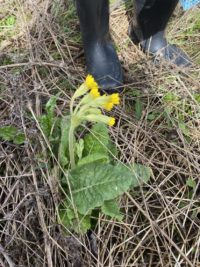
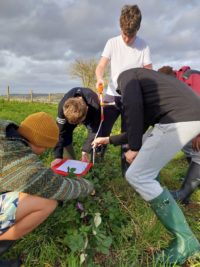
Sustainability Curriculum 2023 onwards
For September 2023, our new gardener and permaculture educator, Meg Watson, will help deliver our sustainability curriculum. Twice weekly sustainability lessons will start in Year 7 in September 2023 and move up with this cohort so that by September 2025, all students in Years 7-9 will have timetabled outdoor sustainability lessons, complemented by what they learn in the rest of the curriculum as we develop an interdisciplinary approach to problem solving. In 2025, we intend to be in the first cohort offering the Natural History GCSE to our Year 10 and 11 students.
Year 7 students will have two timetabled sustainability lessons per week. They will take responsibility for beginning the process of transforming the College gardens into a self-sustaining permaculture ecosystem. The theme for Year 7 will be water and its importance which will be a focus in Science and Geography lessons. Students will plan and build an irrigation system that harnesses natural water sources and limits the amount of tap water required to sustain our gardens. They will also take part in field trips to Ham Fen and the river Stour at Fordwich to observe beavers’ effects on water retention and local ecosystems. It is likely Year 7 students will resume the monitoring of Nashenden Down for the Kent Wildlife Trust once the Iron Age pigs have done their job.
We would like our September 2023 Year 8 students to focus on waste. They will be involved in designing and building our composting system to ensure we recycle dead organic matter to feed our garden’s ecosystem.
We have been working closely with Ecodriver to enable our Year 9 students in 2023-4 to monitor and help reduce our energy usage across the College. We hope to build a transparent web-based system to enable us to analyse energy consumption data, identify areas of waste and reduce our consumption. We hope to share this practice with RIC families to enable them to save energy, reducing their carbon footprint and saving money as well as equipping students with the skills to monitor and reduce their own energy consumption for life.
We intend that our most dedicated Ecology students from last year, who will be in Year 10 in 2023, will act as leaders and facilitators for younger students, passing on their learning about ecosystem resilience and assisting with the transformation of the College gardens as a co-curricular activity.
Sustainability and outdoor physical activity
Our intention is that activities undertaken in sport lessons and co-curricular clubs contribute towards equipping students with the skills needed to undertake conservation work in tough environments. Students or all age groups develop outdoor survival and orienteering skills via the Duke of Edinburgh Award Scheme. To develop the skills required for conservation work in mountainous regions, we offer Sixth Form students the opportunity to undertake a 6 week National Indoor Climbers Association Scheme Level 1 certificate.
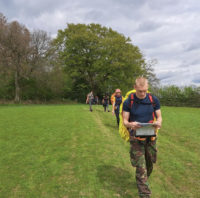
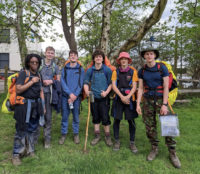
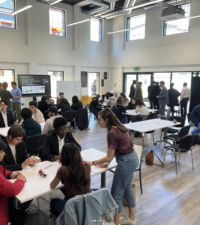
Student achievement 2022-23
D of E Bronze Award | Year 9 | 12 students qualified in May at Detling Hill |
D of E Silver Award | Years 11-14 | 6 students qualified in April at the Ashdown Forest |
NICAS climbing certificate | Year 12 - 14 | 8 students qualified this June, 7 last year |
Sustainability and technology
As a College, we aim to reduce paper and toner usage. Our use of the Google for Education suite of apps enables teachers to set and mark work on Google Classroom instead of on paper, thus reducing our carbon footprint.
In June, 6 Year 12 students attended a sustainable technology event at The Engineering and Design Institute, London. Students were introduced to the concept of wind turbines, renewable energy and sustainable practices. They designed and built their own wind turbines gaining a deeper understanding of how wind energy works and how it can be used to reduce costs and promote sustainability.

